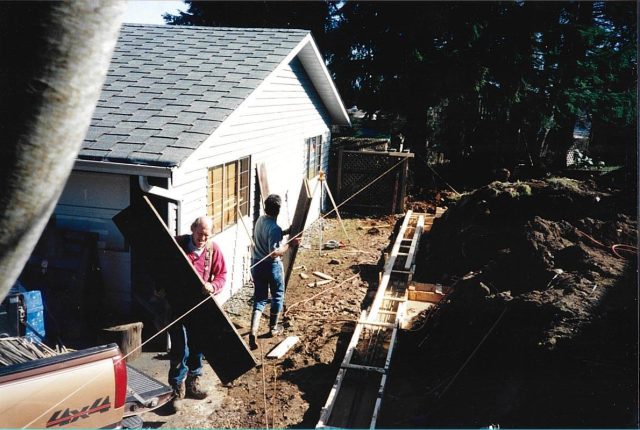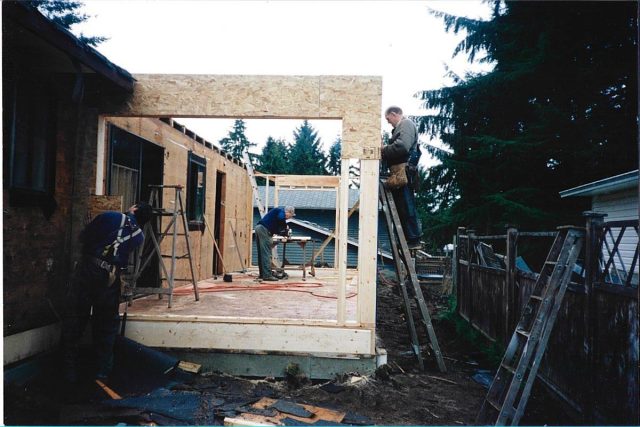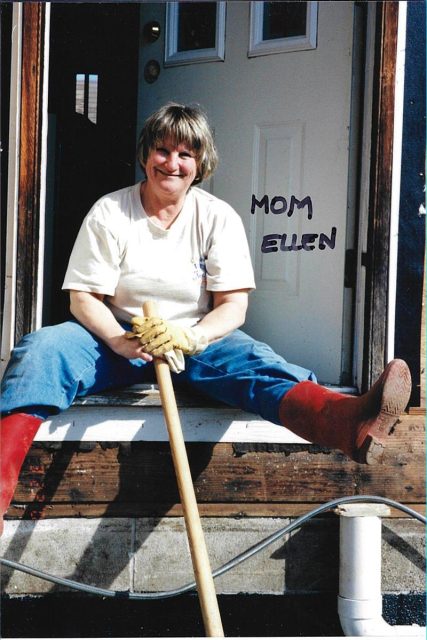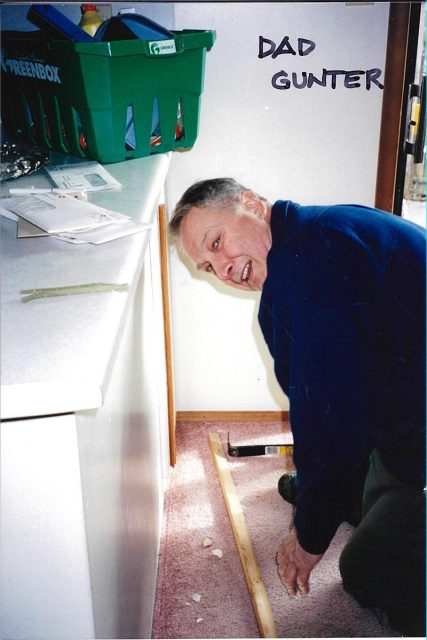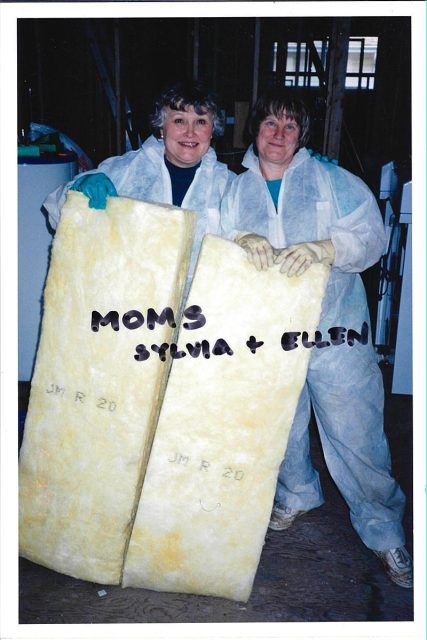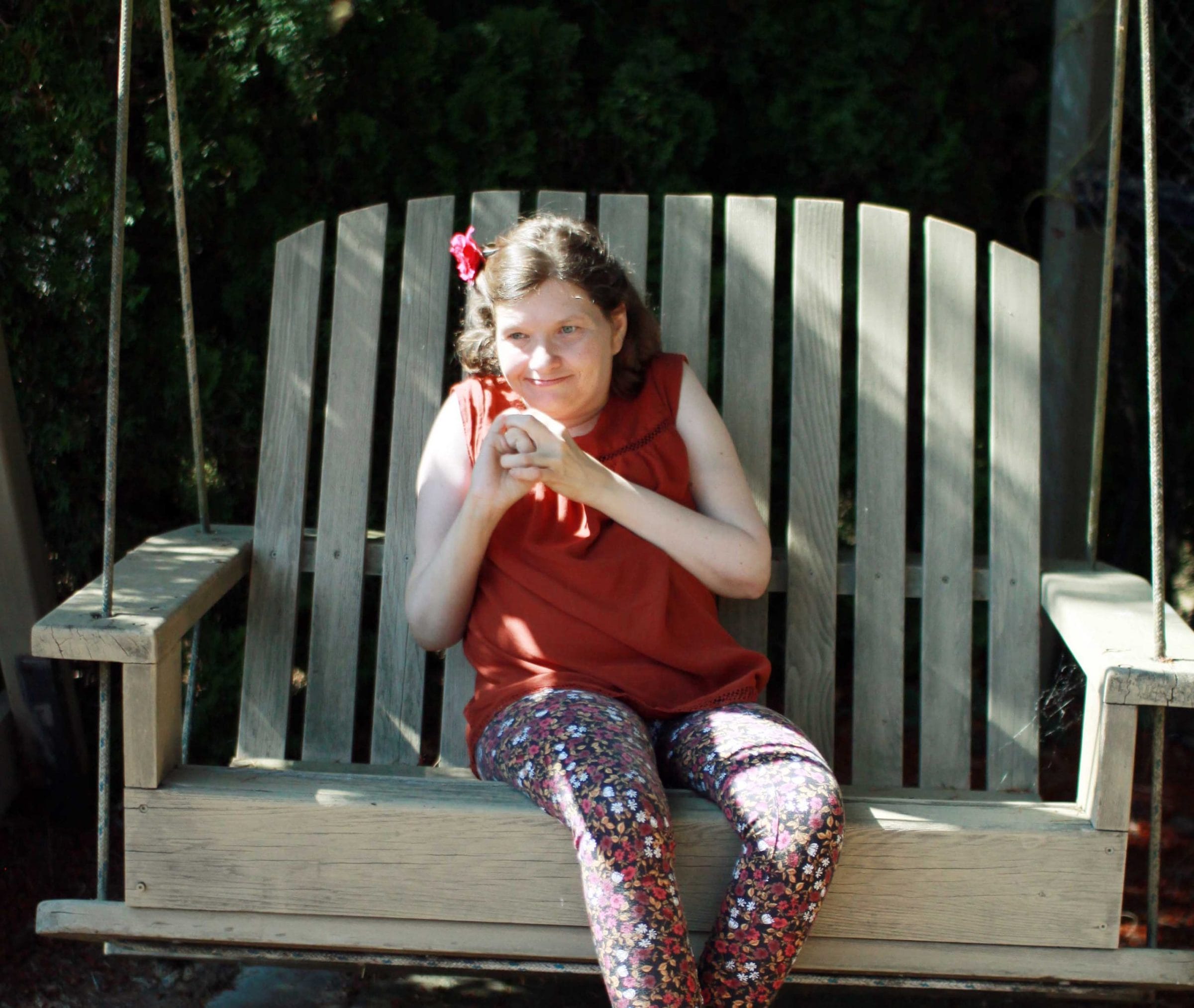
People
A Home For Tanya
The home that Tanya shares with her roommates is beautiful. It is spacious and bright, with large windows letting in the natural light. Each woman has her own room, decorated to her own tastes. The large garden provides opportunity to enjoy the fresh air and sunshine. That this home exists in its present form is thanks largely due to Tanya’s parents Ellen and Gunter Mundschutz and their community in Campbell River. Their relentless advocacy for Tanya and others who live with developmental disabilities is a story of courage, determination, and creativity.
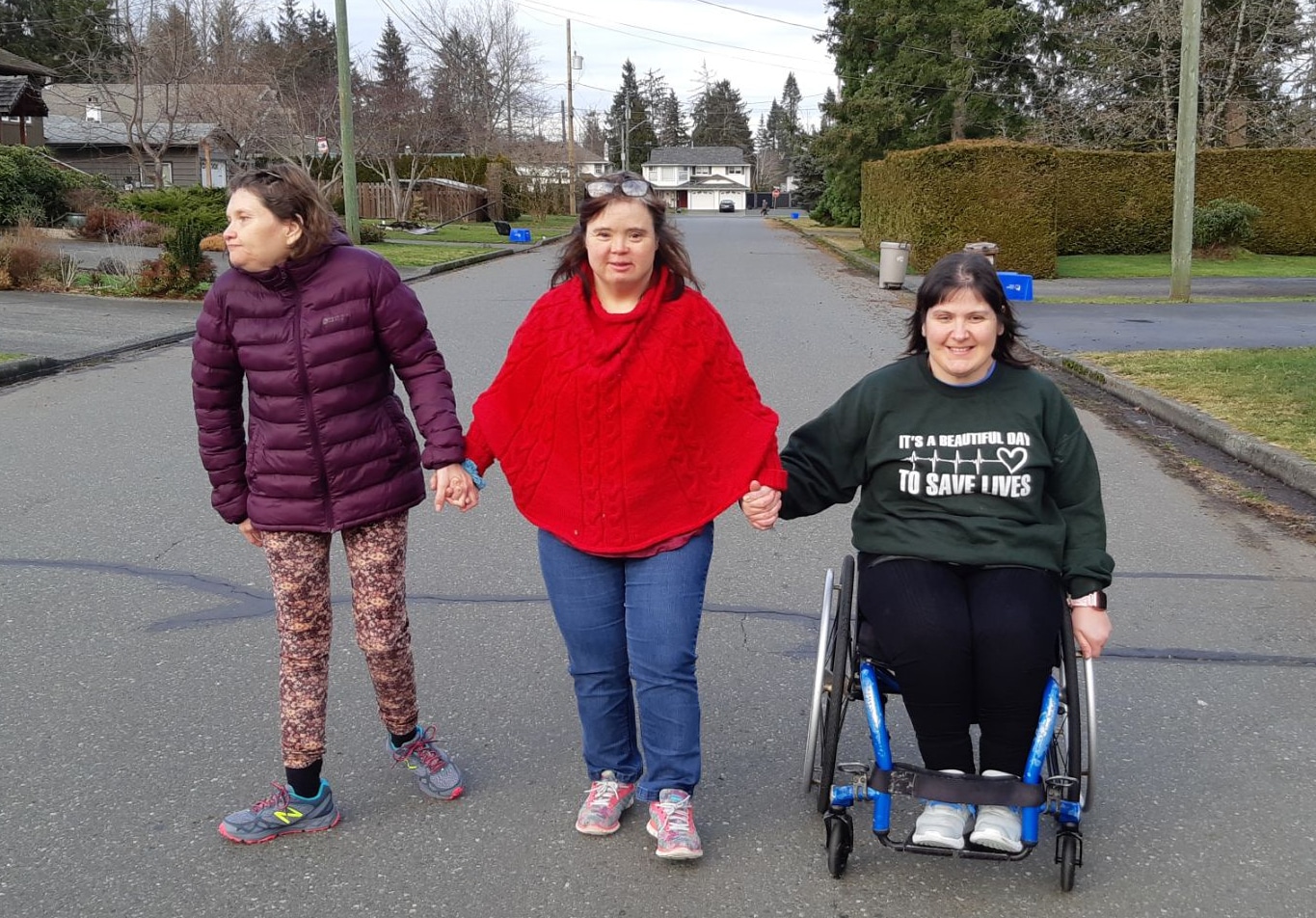
Diane Bieber is a program director with Communitas Supportive Care Society and has known the Mundschutz family for many years. She says that their commitment to Tanya’s care and their willingness to share their knowledge has been an inspiration.
“Ellen and Gunter are good people and very involved with Tanya’s care,” she says. “They know more about Rett Syndrome than anyone on Vancouver Island. We have learned a lot from them.”
Tanya’s Early Years
Tanya was born a healthy, happy baby. She was the much-longed-for sister for their son Stephen and they were a very happy family. But by the time Tanya was 18 months old, they noticed that she smiled less, wouldn’t take things that were offered to her, or eat like she did before. Visits to doctors and specialists did not bring any answers.
“We were at a loss of what to do,” Ellen says.
It wasn’t until Tanya was 9 years old that she was officially diagnosed with Rett Syndrome, a rare genetic neurological disorder that occurs almost exclusively in girls and affects nearly every aspect of a child’s life, including the ability to speak, walk, or eat. Having a diagnosis motivated Ellen and Gunter to learn as much as they could in order to help Tanya grow and thrive.
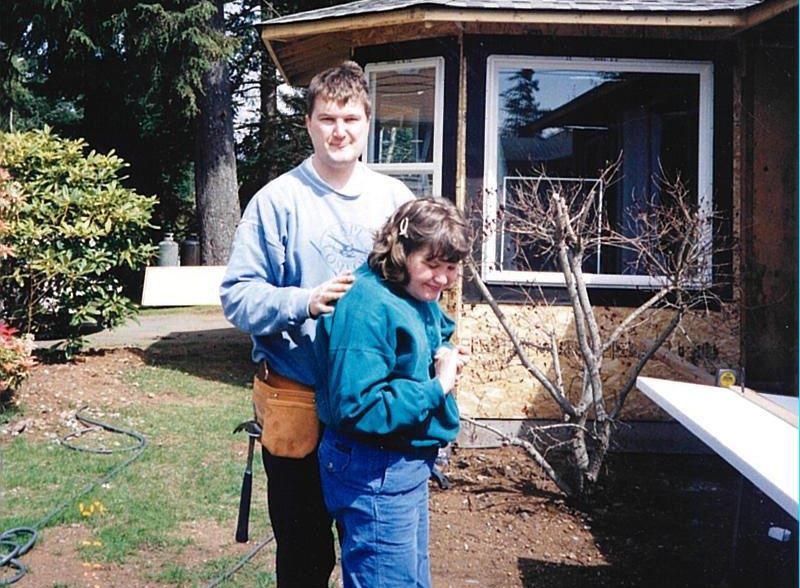
They discovered the Northwest Rett Syndrome Association and attended conferences. They connected with other parents whose children live with developmental disabilities and formed a support group. This active group created special programs to support each other and their children that were both popular and impactful. Ellen and Gunter made some significant friendships like that with her friend Sylvia, whose son Andy became good friends with Tanya.
Ellen also joined the Association for Community Living as a board member. It was through her involvement on this board that she began to realize that resources for children with disabilities were scarce once they left the public school system. She began to wonder what Tanya’s future would look like as an adult.
“A Chance to Live”
It was about this time that the provincial government was changing its model of care from institutional care to care within the community. It was out of concern for their children’s future that Ellen and Sylvia began to dream together.
“Neither of our children could speak and so could not clearly advocate for themselves,” she says. “How could we eventually house them without placing them where they might be ignored or worse?”
The two families pooled their resources and purchased a house that they felt they could renovate to accommodate their children. They approached the ministry with their plan and were asked to present a detailed plan for the project. Ellen says it was overwhelming.
All we wanted was a safe home for our children to live in. We visited other homes in the area but we didn’t really get any help. – Ellen, Tanya’s mom
Then Ellen remembered her friend Virginia Brandon, the Field Coordinator for Communitas Supportive Care Society (then known as MCC Supportive Care Society), supervising the support services on the North Island for people living with disabilities. In her role, Virginia was instrumental in establishing residences for those who were coming out of institution and into community. She arranged a meeting with senior staff from Communitas who helped them fine-tune their plan for submission to the local ministry office.
After several months, their application was approved. They hired a friend with a construction firm and Gunter worked alongside him to get the extensive renovations done that were required by the ministry and that would make the house a home for Tanya, Andy, and one more roommate, also named Stephen.
Before their children moved in, Communitas staff began providing services in their family homes. This was ideal as it provided a smooth transition from one home to the other. In August 2001, the new home was finally ready for Tanya, Andy, and Stephen. Even though this was years in the making and they had worked so hard to bring about this reality, it felt strange.
“We had never had Tanya leave us for that long, our home felt empty,” Ellen remembers. “Gunter said it felt like we were giving her away but I said we weren’t giving her away, we were giving her a chance to live.”
A Place of Belonging and Growth for all
And that’s exactly what Tanya has done. She has enjoyed – and continues to enjoy – a rich and full life. She has had several roommates over the years, people that Ellen and Gunter also got to know and care for. When Sylvia’s son Andy passed away several years ago, Ellen and Gunter bought the other half of the home from her. As other roommates joined Tanya, further renovations were made to accommodate their needs. Today, Tanya continues to share the home with Dez and Jackie. Through all these transitions, Communitas has rented the home from the family and facilitated the services there while the Mundschutz’s took care of all the maintenance and landscaping.
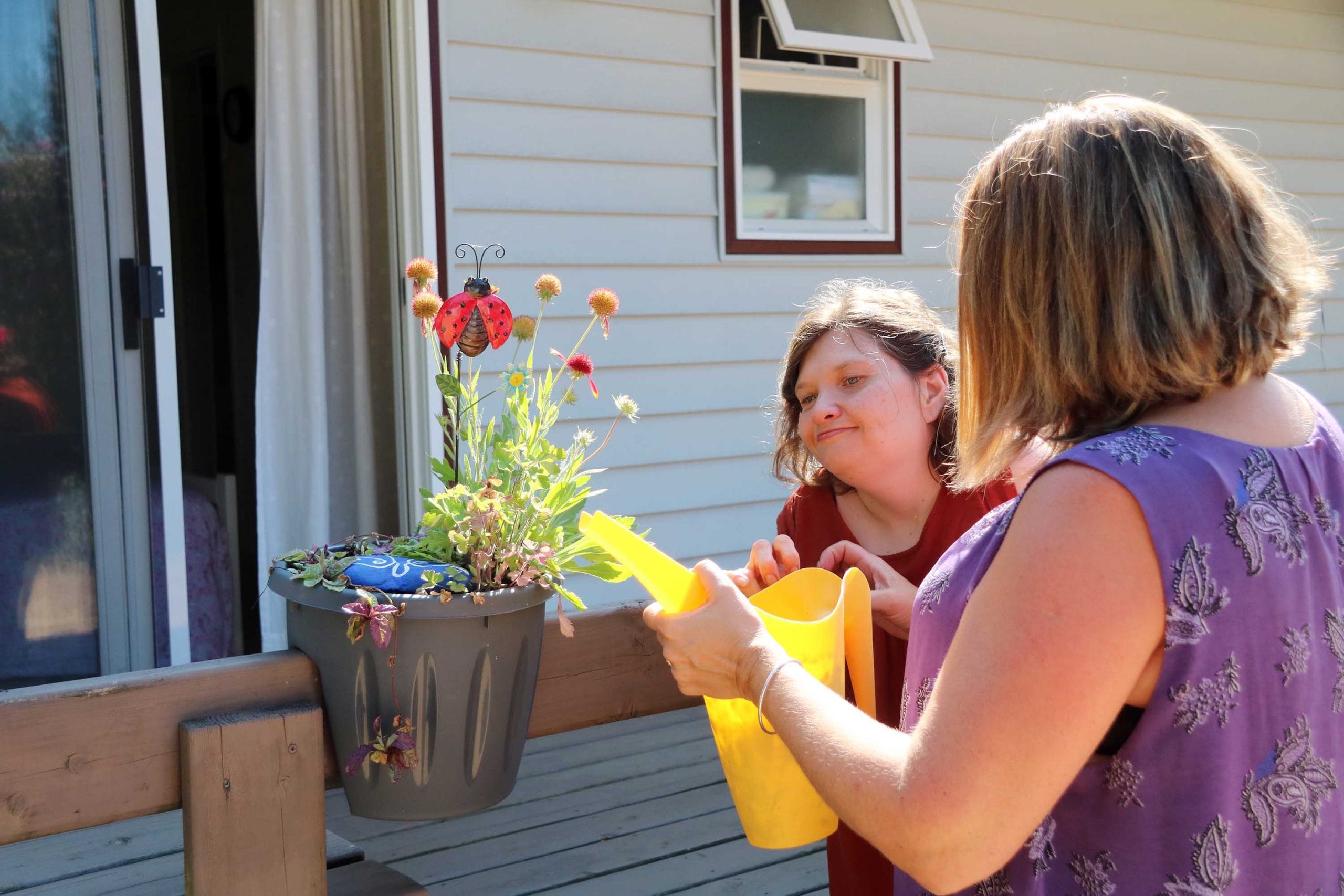
But this year, another, significant change was made: Communitas became its owner.
“Ellen and Gunter came to me to talk about the sale of the home,” Diane remembers. “After so many years of hands-on involvement in the home, it was not a decision that was made lightly or easily.”
Karyn Santiago is the chief executive officer for Communitas. She appreciates the seamlessness of the supports for Tanya and her roommates that have resulted from the collaboration between Communitas and the Mundschutz family. She is grateful that Ellen and Gunter welcomed others to share their lives with Tanya creating a wonderful, inclusive home for people of all abilities.
“It is these organic relationships between families, people we support, funders like Community Living BC, and ourselves that create true places of belonging, growth, and contribution for all people,” she says.
Karyn praises Ellen and Gunter for being pioneers in creating a home for their daughter, ensuring that not only Tanya but other people would have a place to call home.
“I am so grateful that they invited Communitas to be part of their story,” she says.
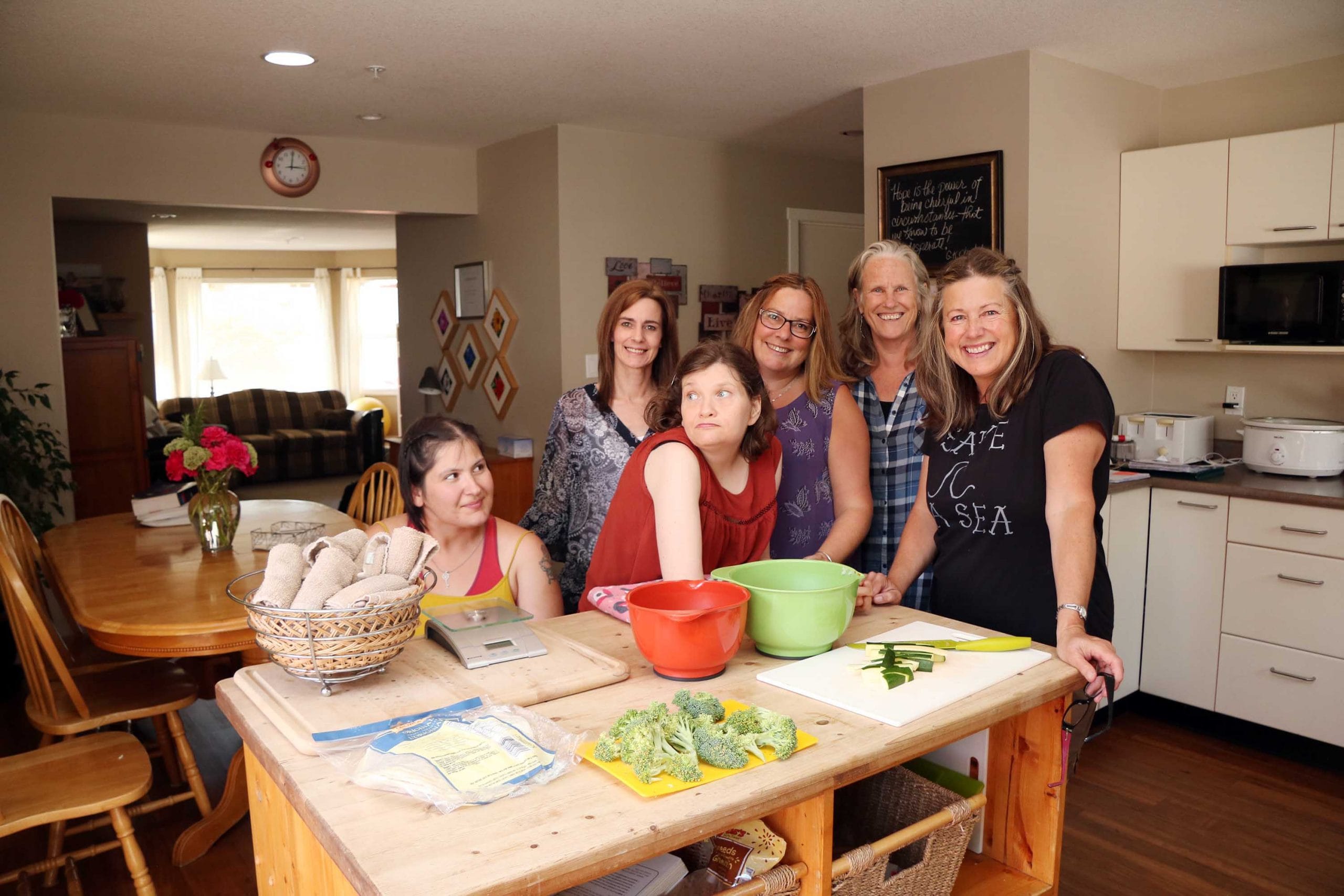
Diane also appreciates how Ellen and Gunter advocated for their daughter, challenging expectations, and giving Tanya every opportunity to be as independent as possible. Their knowledge of Rett Syndrome and their commitment to Tanya’s growth have helped Communitas staff learn and grow too.
“They have been so instrumental in Tanya’s progress, keeping her ambulatory, allowing her to experience life for herself,” Diane says. “They really are powerful, impressive people and I have had every confidence in their knowledge and have been grateful that they’ve shared that with us.”
As Ellen reflects on their journey, she recognizes that it all comes back to Tanya: a loved member of their family whose circumstances brought both challenges and blessings. Letting go of the home was hard but it was the next step on the journey.
“Being able to sell to Communitas made this a bit easier. The support over the years has not wavered and communication is ongoing,” Ellen says. “We feel blessed with the care that our children receive and with the happy, peaceful atmosphere of their home.”
Related Stories
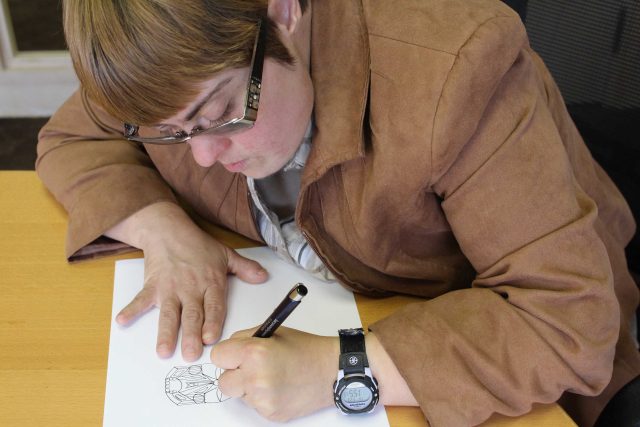
Artist Creates Unique Colouring Book
Kara-Lyn Loewen has used her talents to create a unique colouring book. Find out how you can get your copy today!
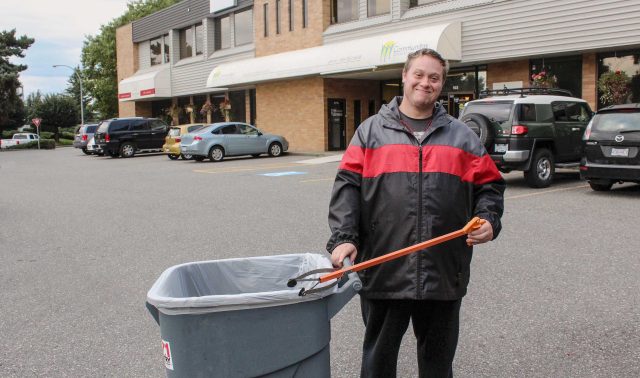
Keeping It Clean
If you’ve noticed that the litter on your street has been picked up, the errant shopping cart is no longer on your lawn or the broken streetlight has been repaired, you might have Shane Toy to thank for that.
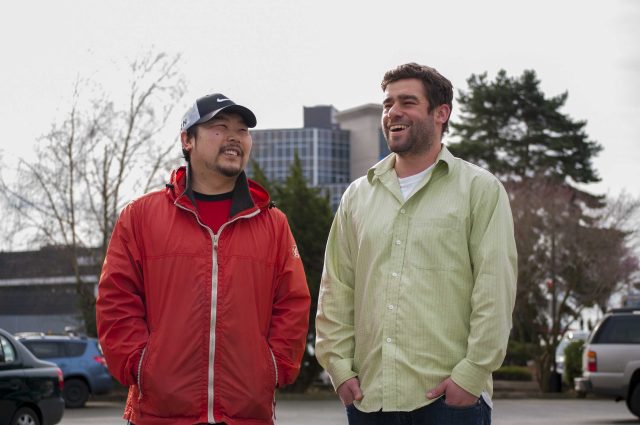
On the Path to Wellness
Brian and Micah feel it is important for the church to talk about mental illness and create safe places for people to share their stories
